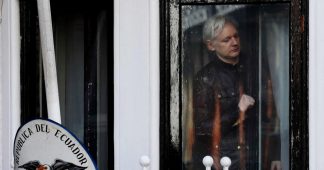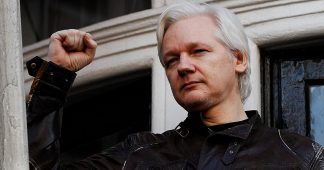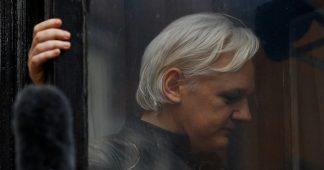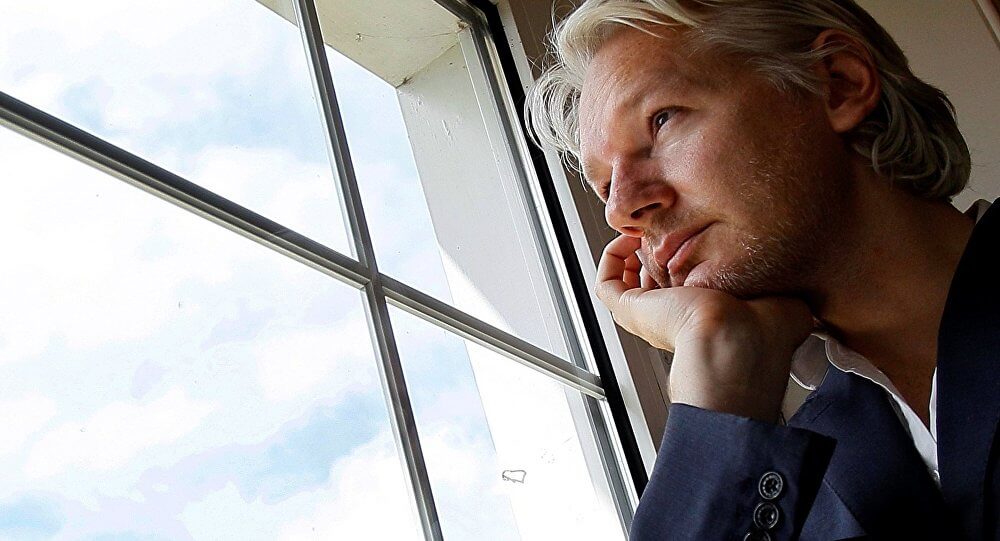By Richard Baker
Fugitive Wikileaks founder Julian Assange has been issued with a new Australian passport after lengthy negotiations over whether he was subject to an arrest warrant for a “serious foreign offence”.
A Department of Foreign Affairs and Trade official confirmed in a Senate estimates hearing on Thursday that Mr Assange’s 2018 application for a new passport had been accepted. Consular and Crisis Management Division first assistant secretary Andrew Todd said, “Mr Assange does have an Australian passport”.
It’s an important development for Mr Assange amid reports the Ecuadorian government, which has housed him in its London embassy since 2012 after Swedish authorities requested his extradition as a suspect in a rape case, may be preparing to end his political asylum.
Swedish prosecutors announced in 2017 that they had closed the rape investigation.
The new passport makes it possible for Mr Assange to return to Australia. He has been without a passport after his previous one expired several years ago.
Australian barrister and adviser to Mr Assange, Greg Barns, said credit was owed to Australia’s former foreign affairs minister Julie Bishop, who he said had gone to great lengths to ensure Mr Assange’s rights as an Australian citizen were upheld by being granted a passport.
Ms Bishop announced yesterday that she was quitting parliament at the next election.
Mr Barns said it was time for the Morrison government to get more active in resolving Mr Assange’s situation.
“The Australian Government does have a role to play in the resolution of Julian Assange’s case,” he said.
Despite his isolation, Mr Assange continues to be at the centre of some of the world’s biggest news stories and has hosted celebrity visitors within the Ecuadorian embassy, including actor Pamela Anderson.
Most notably, Mr Assange and Wikileaks have been key elements of the US Justice Department probe led by special counsel Robert Mueller which is examining whether any members of the Trump 2016 campaign conspired with Russian operatives to influence the presidential election by hacking Democrat Party emails to damage candidate Hillary Clinton’s prospects.
Wikileaks released embarrassing emails from the heart of the Democratic campaign during the 2016 campaign, fuelling suspicion Mr Assange was working in concert with Russian interests.
The department is understood to have issued Mr Assange with his new passport in October.
A DFAT official at an estimate’s hearing in October said Mr Assange’s passport application had “not been rejected”.
But absolute confirmation that he has actually received a new passport did not come until Thursday’s heading.
DFAT officials told the estimates hearing they had no knowledge of legal proceedings against Mr Assange in the United States.
Documents show Mr Assange’s UK-based lawyer, Jennifer Robinson, applied for a new passport on his behalf in mid-2018.
DFAT replied that it was of the belief that Mr Assange’s entitlement to a passport may be affected by ongoing legal proceedings in the United Kingdom.
“Specifically, we understand you may be the subject of an arrest warrant in connection with a ‘serious foreign offence’ within the meaning of section 13 of the Australian Passports Act 2005,” DFAT replied.
“In order to progress your application, we require confirmation that section 13 is not enlivened by your circumstances. To this end, we ask that you provide us with confirmation that section 13 no longer applies to you. Until this time, your passport application will remain on hold.”
Centre Alliance senator Rex Patrick, who has pursued Mr Assange’s right to a passport in recent estimates hearings, said that, given Mr Assange’s failing health, the best thing would be for him to leave the Ecuador embassy and face the British justice system over breaching his bail conditions.
After that, he should return to Australia, Senator Patrick said.
Published at https://www.smh.com.au/politics/federal/julian-assange-gets-a-new-australian-passport-20190221-p50zek.html











